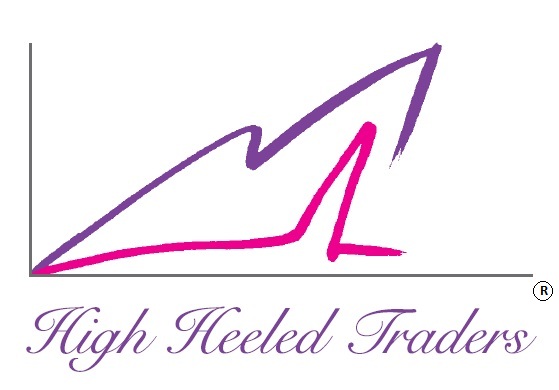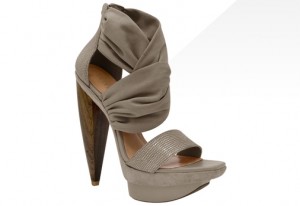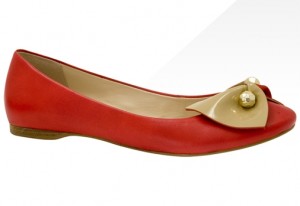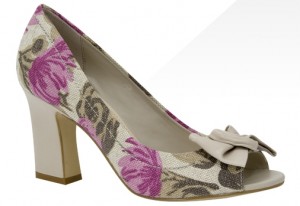 I was trying to help a BFF to find “Mr. Right”. One of the things I asked her to do is to list what is important to her about the man and the relationship she desires. She came up with a long list in a spreadsheet. I was fascinated that the “must-have” or “negotiable” items are much different from mine. Needless to say, talking about it changed her world-view. Anyway, 10 years on, I’ve still got the spreadsheet, and she’s still single. HAHAHA
I was trying to help a BFF to find “Mr. Right”. One of the things I asked her to do is to list what is important to her about the man and the relationship she desires. She came up with a long list in a spreadsheet. I was fascinated that the “must-have” or “negotiable” items are much different from mine. Needless to say, talking about it changed her world-view. Anyway, 10 years on, I’ve still got the spreadsheet, and she’s still single. HAHAHA
Anyway, similarly I would like to say, this “long list” I am doing comparing Real Estate and Trading may be different to what you think is important to bear in mind. As much I want to try and walk in your shoes (and you in mine), we’ve all got different understanding and experiences, while we might see and do the same things, somehow, the journey will be different.
Also, I am going to tell you all these things I learned but know that “whilst great care is taken to present accurate and authoritative information, it is in no way complete nor that I am engaged in rendering legal, accounting, trading, or other professional service. If legal or other expert assistance is required, please seek competent professional advice. “
So to continue on:
4) Income
The purpose of investing is to get income we don’t have to “work” for — which is called “passive income”. You set it up and does its thing while you are busy with your work or business and periodically, you get income from it, that income is passive income. Sweet!
a) Real Estate – the allure of Real Estate is “passive income” – as long as your property has a tenant and pays rent, you get an income. Note though you still need to consider “net income” – where, your rental income is lessened by the expenses incurred by the property (loan payments, property maintenance, taxes etc more details below) , this could leave you with “negative cashflow” meaning you have to add cash to maintain the investment. (Why do it? An investor would weigh this loss against the value of the property and /or capital growth) – say you are happy to shell out $50 a month because you bought the property with a small downpayment and the property is $100,000 below market value by some heirs wanting a quick finish to the deal.
Typically, Commercial property would produce more income than residential property –also partly because you need to put more equity on Commercial property (around 40% downpayment), thus the loan payments would be smaller.
b) Trading – there are 2 incomes from Trading : Passive Income and Trading Income
i) Passive income
(1) Dividend – usually from “blue-chip” well-established and profitable companies. Companies that have steady revenue and low costs would normally pay their shareholders investment in the form of “dividends”. They could be paid regularly – called “fixed dividend” or “special dividend” – a one-time payment for whatever reason the company deems fit. They could also be “fully-franked” meaning taxed are already paid for it so you don’t have to pay tax on it.
(2) Interest earnings
(a) STOCKS/ OPTIONS – from an account maintenance point of view, when you have cash that you haven’t committed to your trading that stays in your account, you can get paid relatively high interest rates. These are usually Cash Management products that banks/brokers have to also increase their deposit holdings from the public. My current bank for example pays 5.5% per year on cash that is parked on the Cash Investment account that I use for Trading allowing me to withdraw/deposit as often as I want. Contrast that with a Term Deposit where there is usually minimum amount (5000) and minimum amount of time you need to keep with the bank (e.g. 6 months) and earns 6.5%. For example, with Cash Investment Acct, $10,000 paid 5.5% interest will get $45 per month, not stellar but can still pay some of your trading costs.
(b) FOREX – Foreign Exchange. I’m not going to fib about knowing how this work because I don’t trade FOREX, but let me share a point that when trading currencies you can earn Interest payment at rate payable for the currencies as you keep them in your Trading account. I remember when the Aussie Dollar was equivalent to 80c to 1 US Dollar and started going up because our interest rate is much higher than US interest rate and kept going up, and almost went to “parity” (meaning equal value) – imagine if you’ve been holding the Aussie Dollar and earning the interest rate say over 1 year went from 6% to 9%, your money would have grown from 2 incomes there – the interest rate and the increase in value of the currency. Please feel free to consult other references for FOREX. I used : http://www.oanda.sg/assistance/quickguides/trading-on-fxtrade/interest-calculations
ii) Trading income – from buying LOW and selling HIGH and also, as you get more skilled and knowledgeable, you can also earn from Selling High and Buying Low. To earn Trading Income would require a bit more activity than “passive income” but still you need NOT spend 40 hours work week like if you are on your job and get paid for your time.
I think this is an important consideration on your Trading, is that you are able to trade markets and make money in both UP and Down directions. It not only presents more opportunities but also manage your risk.
5) Costs – Opening and Closing
a) Real Estate — Profits are often squeezed by the high transaction costs to Open and Close Real Estate deal. The following is a typical transaction of buying an apartment “off-the-plan” in Australia – where we are so fortunate to have to pay tax when we buy property (probably was the reason the government here was able to avoid a Recession during the Global Financial Crisis). Anyway, for example the property costs $277,000 and upon completion 12 months after, it was sold for 320,000 for 43,000 “profit” however if you consider the costs :
- Legal fees – open/close = 2,500
- Real Estate Agent’s fees incl Marketing (3.3%) = 10,560
- Government Admin / Search Fees = 500
- Stamp Duty =8900 (Australian gov’t “tax” on buying property)
- Deposit Bond =2500 (paid instead of a 10% deposit, lessen the cash outlay)
Total Acquisition Costs = 24,960
Tax on Gross Profit @ 30% = 5,412
Total Transaction Cost = 30,372
** If selling after holding a property (after a few years), there would be costs associated with getting the loan, “admin fees”, or getting out of a Fixed loan called “Exit” fees or Break fees, plus loan payments if the Expenses is more than the Income.
(You might want to refer to http://www.canstar.com.au/exit-fees/ )
b) Trading
Trading by yourself through an online broker would generally save on your costs. Online Share Trading Brokerage fees in Australia is from around $20, for Options it’s around $45 per transaction. Plus “Goods and Services Tax” or “Value Added Tax’ which is around 10% in Australia up to 15% in other Asian markets. So to Open and Close – which involves 2 transactions, the cost is around $50 for Stocks and $ 100 for Options. Here’s a sample of Rates and Fees that I refer to :
https://invest.etrade.com.au/RatesandFees/Default.aspx
With Trading, some online brokers offer the Active Trader discounts of $5 less if they trade more than 10x a month or increase the brokerage fee from a flat rate to a percentage of the value of the Shares / Options above a certain amount.
Note that Real Estate costs are considerably higher than costs of Trading financial markets.
3) Continuing expenses
a) Real Estate
Monthly
• Loan payments
• Bank account fees
• Property Management
• Transaction fees (debit/credit fees)
Quarterly
• Property Taxes
• Government services fees (e.g. garbage collection)
• Water / Utility payments
Annual
• Accountant fees (for yearly tax filing)
• Travel expenses (to inspect property could include airfare/hotel/taxi)
Occasional (as the property gets older, more costs of this nature)
• Repairs
• Replacing fixtures and fittings e.g. hot water system, plumbing
b) Trading
i) These are common Monthly/Quarterly costs to private traders:
(1) Internet subscription (for online trading)
(2) Phone service (for backup if online facility is down or when mobile)
(3) Continuing education costs e.g. seminar / books / materials
ii) Long Term investor
No extra expense to buy and hold stocks or ETFs as there is no time-restriction to hold these investments
iii) Short Term / Day Trader
Since there is more trading activity, chances are, trading in this style would need more “real-time” data and thus would need more sophisticated tools. Here are some examples :
• Software
• Subscription to more sophisticated Trading platform
• Subscription to market data
• Continuing education costs e.g. seminar / books / materials
Professional Traders belonging to large funds or those that operate funds could also incur costs relating to being a member of Exchange.
Be aware of the high costs with how you invest or maintaining the investment. Oh I know some people would say that “it’s OK”, that’s “tax deductible” yeah right, but you had to cough up the money in the first place. From a cashflow perspective, NOT GOOD.
I’ve got several other points to cover (15 or so… we’ll see where this will take us).
I’ll be back princess…
(Thanks to Via Uno for shoe images livening up this blog post)












